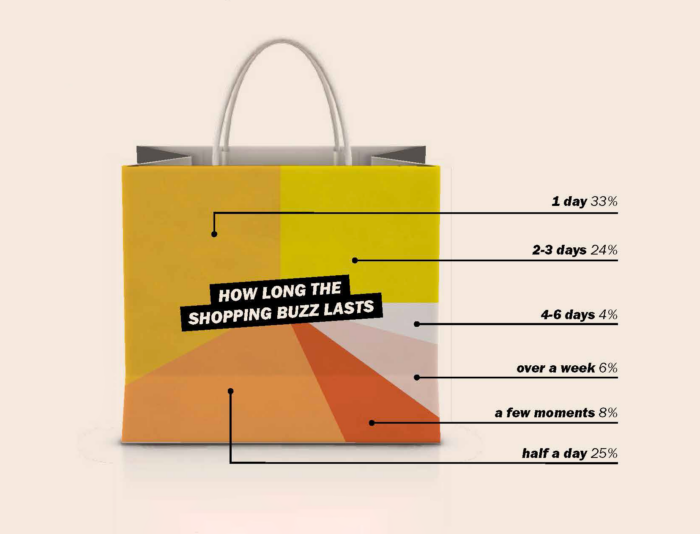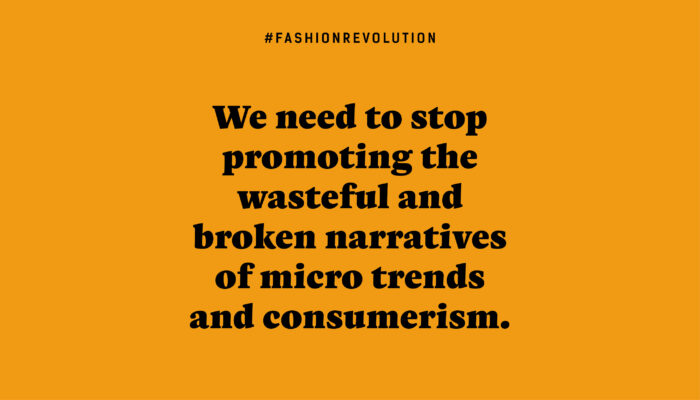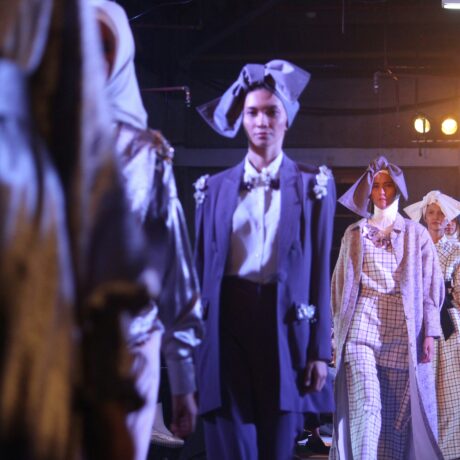After the Binge, the Hangover
This article was originally published in our fanzine issue 002: LOVED CLOTHES LAST. We’ve republished it here as we focus on the theme of consumption during the month of November. Read #LovedClothesLast for free in our fanzine library.
Research from Greenpeace reveals how people all over the world consume far more clothes than they actually need and use. It’s not just a western problem; it’s an international phenomenon. The survey included at least 1,000 people aged 20 to 45 in China, Hong Kong, Taiwan, Italy and Germany.
THE SIDE EFFECTS OF BINGE SHOPPING
While people seek happiness and selfworth by shopping, the survey results show that they are deeply ambivalent about their own behavior. Stating guilt and shame, people often feel bad about their own useless purchases and overspending habits. Many people realize that shopping does not lead to increased happiness in the long term. Around 50 percent report that their shopping excitement wears off within a day — the binge is followed by a hangover.
Excessive shoppers experience emptiness and boredom in between shopping periods, with feelings of restlessness and dissatisfaction fuelling their desire for further shopping experiences. Young, high income women are the most vulnerable. The spread of online shopping and social media makes people even more susceptible to overconsumption.

People around the world have already reached the point where closets are cluttered with cheap trends from yesterday that are no longer wanted and used. American and European markets are saturated. Secondhand shops and markets are overflowing with unwanted clothes.
REEVALUATING WHY WE SHOP
On the bright side, some people are questioning the consequences of their own consumption habits and reevaluating materialistic values. Not only are many people well aware that planetary boundaries and unfair working conditions in the industry mean that we cannot continue business as usual, they are increasingly seeking meaning and happiness in experiences and relationships rather than the consumption of material goods. With negative experiences of overconsumption rising, there is an underlying longing for physical and emotional durability based on real connections.

SHIFTING OUR VALUES TOWARDS BETTER QUALITY AND CARE
Fashion industry leaders and social media influencers need to stop promoting the wasteful and broken narratives of micro trends and consumerism, and instead, offer more alternatives that incorporate and emphasise values such as caring, sharing and repairing our clothes. Fashion companies should shift the focus of their dominant marketing narratives from convenience and short-lived trends to the aesthetics of durability, longevity and quality.
The business models of the future should aim to foster a deeper and longer lasting connection to fewer and better clothes, which will engage their customers in a sustainable, valuable relationship.
visit www.greenpeace.org








